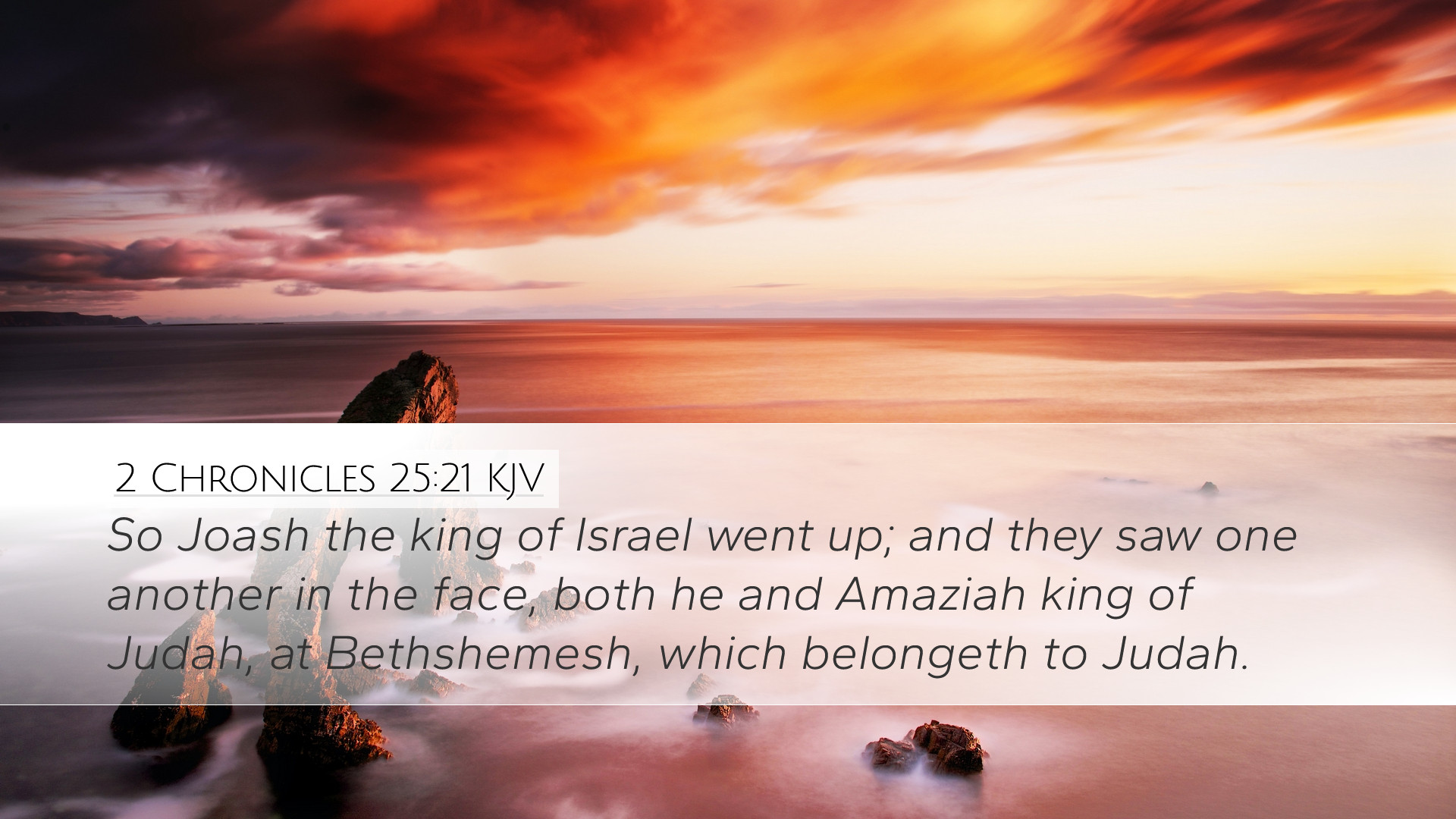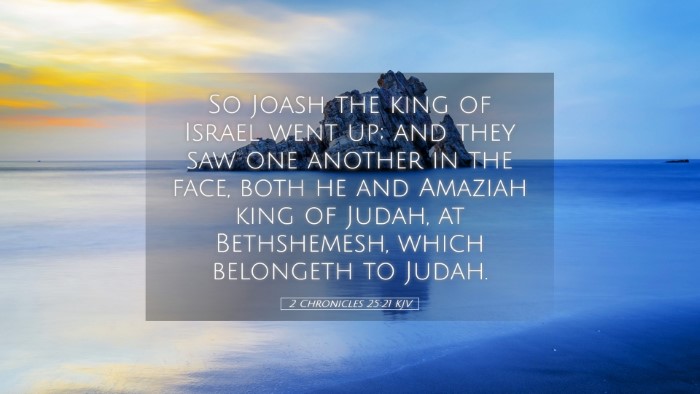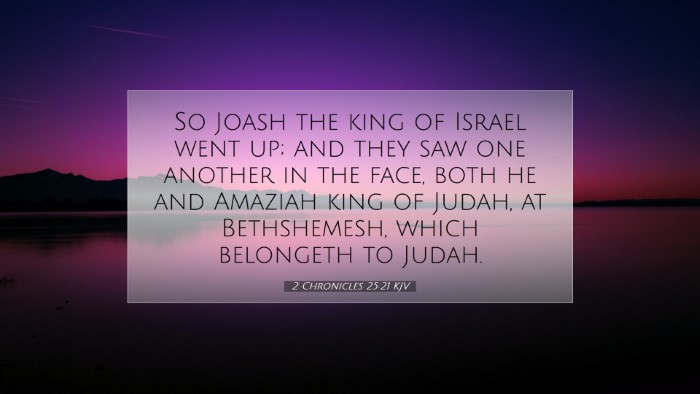Commentary on 2 Chronicles 25:21
Verse Context: "So Joash king of Israel went up; and they saw one another in the face of the battle, both he and Amaziah king of Judah." (2 Chronicles 25:21, KJV)
Introduction
This verse highlights a critical moment in the confrontation between the kingdoms of Israel and Judah, specifically focusing on the interactions between their respective kings, Joash of Israel and Amaziah of Judah. The historical backdrop consists of rising tensions and the pursuit of military conquest.
Historical Background
The narrative in 2 Chronicles 25 captures a significant episode in the divided kingdoms of Israel and Judah. Amaziah, the king of Judah, had engaged in military confrontation following a successful campaign against the Edomites. Fueled by pride and ambition, he sought to confront Israel, which ultimately led to his downfall.
Matthew Henry notes that Amaziah's actions stem from a spirit of overconfidence that often accompanies victory, which can lead to folly if not tempered by wisdom and humility. Joash, the king of Israel, had previously experienced similar achievements and is thus drawn into this conflict.
The Characters Involved
- Amaziah: The king of Judah, noted for his initial faithfulness but later succumbing to pride and foolishness.
- Joash: The king of Israel, recognized for his shrewdness and attempts to maintain the integrity of his kingdom amid external threats.
Thematic Insights
This confrontation serves as a microcosm of the larger spiritual conflicts faced by God's people. Albert Barnes points out the representational nature of these kings as they embody the broader dynamics of faithfulness and waywardness experienced by the nations they govern.
The face-to-face confrontation symbolizes more than a physical battle; it represents the clash of values, leadership styles, and divine providence. Amaziah’s trust in his military might contrasts sharply with Joash’s political acumen.
The Role of Divine Providence
A significant element of the commentary on this verse is the notion of divine providence intervening in human affairs. Adam Clarke emphasizes that while both kings position themselves for battle, it is ultimately God's sovereignty that governs the outcome. The conflict serves to illustrate how human plans can be subverted by divine will.
Lessons for Today
- Humility in Leadership: Leaders must guard against the pride that can arise from success. Amaziah's initial victories led him to overreach in his ambitions.
- Wise Counsel: Seeking prudent advice is vital. Joash's response to Amaziah is steeped in wisdom and clarity, demonstrating the importance of counsel.
- Understanding God's Sovereignty: The ultimate outcome of conflicts is determined not merely by human effort but by God’s sovereignty. Trusting in divine guidance remains paramount for leaders today.
Conclusion
The verse presents a pivotal moment revealing the complexities of leadership, conflict, and divine oversight in the affairs of Judah and Israel. The operations of pride, wisdom, and sovereignty coalesce to teach timeless lessons relevant to contemporary readers, especially within pastoral and scholarly communities.


